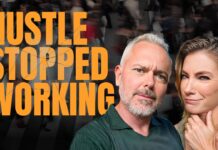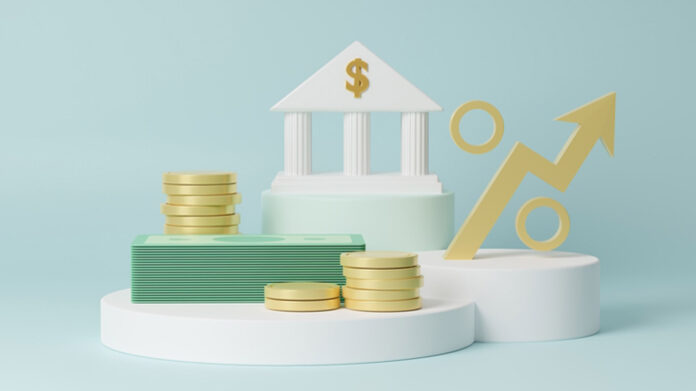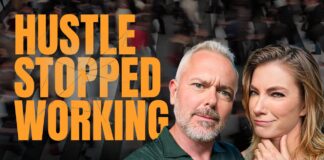In an environment of rising rates and future economic uncertainty, there could be some relief from escalating prices BUT any relief comes with a cost.
What Interest Rates Mean to Consumers
The Federal Reserve’s rate-hiking cycle that is intended to crush inflation most definitely affects the borrowing and saving rates all consumers pay.
Chester Spatt, a professor of finance at Carnegie Mellon University’s Tepper School of Business, said, “We’re certainly going to see the cost of borrowing escalate relatively quickly.”
An important question for you. Spring 2022 is here…have you completed your 2022 Real Estate Business and Lead Generation Plan? If not, no worries. We have done the hard work for you. Download your 2022 REAL ESTATE TREASURE MAP! Text HARRIS to 47372. It’s that simple and takes 3 seconds. Text HARRIS to 47372 and when you do we will instantly text you back with a link to download. BONUS: For a limited time when you text HARRIS to 47372 you will also receive a Coaching Call!
4 Msgs/Month. Reply STOP to cancel, HELP for help. Msg&data rates may apply. Terms & Privacy: slkt.io/JWQt
Greg McBride, chief financial analyst at Bankrate.com, believes that consumers need to stabilize their finances by paying down debt (credit card debt and other variable rate debt) and increasing savings.
What Rate Hikes Means for Potential Homebuyers
The Federal Reserve Chairman Jerome Powell was quite specific about what rate hikes mean for the housing market. Powell suggested that prospective homebuyers wait to see if home prices hold steady.
Some economists think that home prices will steady; others are forecasting a drop in prices. It’s likely that homes in metro areas which are noticeably overvalued such as Boise City ID (73%), Sherman- Denison TX (60%), Lake Havasu City-Kingman AZ (56%), and Phoenix-Mesa-Scottsdale AZ and Las Vegas NV (46%) will see price cuts.
Powell said, “…if you’re a homebuyer, a young person looking to buy a home: You need a bit of a reset. We need to get back to a place where supply and demand are back together and where inflation is down low again and mortgage rates are low again.”
What Consumers Can Do – Pay Down High-Rate Debt
Credit card rates currently stand at 16.61% on average. Ted Rossman, a senior industry analyst at CreditCards.com, thinks that credit card rates may hit nearly 19% by the end of 2022. Rossman calculated that if your APR on your credit card jumps to 18.61% at year’s end, it will cost another $833/month in interest charges over the life of the loan, assuming you make minimum payments on the average $5,525 balance.
Rossman suggests consolidating and paying off high-interest credit cards with a lower interest home equity or personal loan. Another option would be to switch to an interest-free balance transfer credit card.
Those homeowners with an adjustable-rate mortgage (ARM) or a home equity line of credit (HELOC) may want to switch to a fixed-rate mortgage.
Given that the average interest rate for a 30-year fixed-rate mortgage has already more than doubled from 3.11% at the end of December 2021, Jacob Channel, senior economic analyst at LendingTree, said, “…it’s difficult to say just how much higher mortgage rates will go by year’s end.”
(A 30-year, fixed-rate mortgage on a $300,000 loan at a rate of 3.11% would cost about $1,283/month. With a rate of 6.28% instead, it would cost another $570/month or $6,840 more per year and another $205,319 over the lifetime of the loan, according to Grow’s mortgage calculator.)
Car loans are fixed but cars are becoming more expensive. That means that car loan payments are becoming more expensive.
Federal student loan rates are also fixed but if consumers have private loans, those loans could be fixed rate or variable rate loans.
Bottom line…make sure you know which loans are outstanding and see if refinancing those loans makes sense.
Hunt for Higher Savings Rates
Bankrate’s McBride said, “The rates paid by bigger banks are largely unchanged, so where you have your savings is really important.”
The average online savings account rate is close to 1% while larger retail banks average a savings rate of just 0.07%.
McBride said, “If you have money sitting in a savings account earning 0.05%, moving to a savings account paying 1% is an immediate twentyfold increase with further benefits still to come as interest rates rise.”
You may also consider saving via certificates of deposit. Top yielding certificates of deposit pay about 1.5%.
Spatt said, “…one main opportunity out there is the possibility of buying some I bonds from the US government.” Though there are purchase limits on federal bonds and you can’t tap that money for at least one year, these bonds are nearly risk-free and pay a 9.62% annual rate through October of this year.
Like Spatt, Suze Orman is a big fan of buying series I bonds. Orman told CNBC,“The number one investment that every single one of you should have no matter what right now is a series I bond.” Consumers can buy these bonds directly on the US Treasury Department’s website, TreasuryDirect.gov.
What’s Next for Interest Rates?
It’s suggested that consumers ought to prepare for even higher interest rates in the coming months.
As the Fed wrestles with inflation, the Fed has been more than clear that additional rate hikes are on the horizon. Will those hikes remain at 50 or 75 basis point levels if inflation doesn’t moderate? Only the shadow knows.
URGENT! Exclusive Invite: Join Premier Coaching for FREE! You read that correctly, Premier Coaching for the first 30 days is 100%, no strings attached FREE. Here is what you get: DISC Personality Test, Seller and Buyer Scripts, Presentations, Lead Generation Systems, Market Shift Plan, Real Estate Treasure Map, Members Only Community Groups (and a ton more). The best part is you will have a DAILY Live Coaching Call with a Harris Certified Coach. Yep, you read that correctly….every weekday you will attend a semi-private coaching session with your coach. All of this is 100% FREE. Of course, you want to join Premier Coaching. There is Zero Risk and joining costs you nothing. This is the Real Estate Success system you need in this quickly changing market. Join Premier Coaching NOW.
Thanks to CNBC.
























